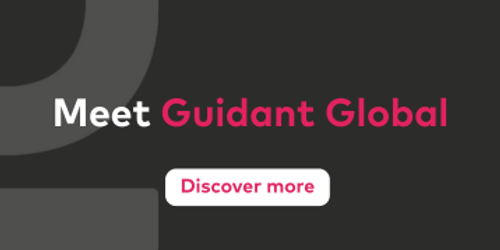
An interview with Vikki to celebrate Autistic Pride Day
June 18th each year marks an important date in the calendar - Autistic Pride Day. Founded in 2005, this day celebrates neurodiversity and raises awareness amongst those who are not on the autistic spectrum, so they do not see autistic people as requiring treatment, but as unique individuals.
Here at Guidant Global, we would like to raise awareness of this day as part of Guidant Global’s diversity and inclusion initiative ‘INfluence’ and embrace diversity across our business.
We have been privileged to speak to one of our colleagues, Vikki Palin who is diagnosed as being on the autistic spectrum. Vikki has kindly has taken time out to explain the impact and her experiences of Autism within the working environment.
- Vikki Palin, Guidant Global
Tell us a little bit about yourself Vikki, how you joined Guidant and the role that you play?
I joined Guidant in September 2018 after I saw the position being advertised through a friend on Facebook who worked at and recommended Guidant. I started in a temporary position and became a permanent member of the team in January this year.
I work within the on-boarding team working across 8 of our MSP customers, where I ensure that candidates have completed the required pre-employment checks when they join Guidant as part of one of our programmes.
I was diagnosed as being on the autistic spectrum whilst being tested for dyslexia in my late teens. This is unusual as it tends to be the case where it is identified in earlier years - I was about 16!
I am fairly low on the spectrum, but do have aspects that pop up at work. It’s funny, as I actually applied for the job before I went on holiday and I was worried that I would be uncontactable whilst out of the country. I got the call from Guidant whilst on holiday, but it did really worry me that I was talking about work whilst on holiday – not logical I know, but that’s all part of living with Autism.
Do you think many people are aware of Autism and the impact that it has on individuals in the workplace?
It sometimes feels that people have no idea of non-visible disabilities in general. Of course people know about Autism, however, they tend to think about it only on the high level of the spectrum where there is usually a physical indication. Whereas people of the lower end of the spectrum may not show any visible signs - it can be completely invisible!
It isn’t something I necessarily enjoy talking about, as I am worried that once people know they will look at me differently and start to make judgments before they know and understand my capabilities. I feel I am more capable in the role that I do because I am so meticulous and naturally focus in on the details that others would overlook.
What are the biggest day to day challenges that you face?
One of the hardest things I have to deal with is the fact that I really care about what I do. I am having to constantly manage how to handle situations that arise from this in the best way. In these scenarios I have to pay close attention to my communication, making sure I re-read emails, check and then check again before I send a reply! This attention to communication is actually good advice to everyone really when you think about it.
Dealing with other people and understanding their emotions can be really difficult at times. Some days I can have a really good day where everything goes according to plan. But then there are other days where there are problems that arise which I have to fix, and rationale can go out the window. To someone on the Autistic spectrum, these aren’t just ‘bad days’, it feels like the end of the world.
On these days I need support from my colleagues, manager and friends at work. I am lucky as I work with Chelsea (Williams) who is my absolute rock! She supports me by listening, giving me space when I need it and happily reading some of my emails before I send them, to ensure I have interpreted emails correctly and my response comes across the way in which I intend.
How can colleagues help to support and empower you/other people with autism to do your best every day?
By having more awareness and understanding of disabilities that are invisible to the eye. Once people are aware they can start to notice tell-tale signs and act accordingly. For example, Chelsea (Williams) is great at this, she can tell when something crops up and supports me to work through it.
Being conscious of language and how to position things would also be extremely useful. By positioning situations (even when challenging) in a positive light rather than an issue, it helps me better understand, work through the situation and makes a huge difference.
We spend a huge proportion of our lives at work and if people were more aware and understanding of each other, it would make for a happier workplace for everyone, let alone for people who are neurodivergent.
What are the key areas that you would like to raise awareness of, in connection to Autism?
That not all disabilities are visible and situations impact people in many different ways.
For example, I struggle with reading emotions and sometime misinterpret a situation. Someone could send something over email which is meant with the best intentions, but I interpret it differently and think they are extremely unhappy.
Emails can be interpreted in many ways so I prefer a phone call - this is a better method to explain and not get any crossed wires! On the flip side, I am sometimes completely oblivious to awkward situations or negative reactions that arise.
It would be great to raise awareness for neurodiversity on Autistic Pride Day across Guidant, so that everyone can get a better understanding of Autism in the workplace and how we can all support individuals in the best possible way.
Australia
Suite 1403, Level 14
309 Kent Street
Sydney
NSW 2000
United Kingdom
United States
27777 Franklin Road
Suite 600
Southfield
Michigan 48034




